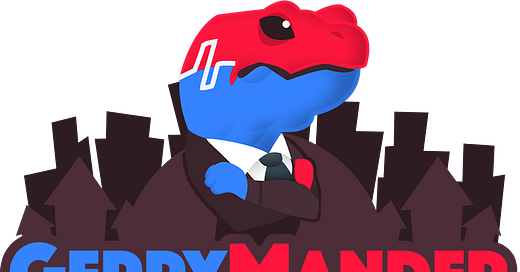GerryMander: A game you need to play at least once
A free online computer game that civics teachers are begging you to play. Okay, maybe they aren't begging, but they would if they knew about it. Master it, and you too will know how to gerrymander.
I hear it all the time. What does it mean to gerrymander? How does gerrymandering work? What's the problem with gerrymandering anyway? Well, gerrymandering is the practice of district-map-drawers to draw maps that ensure that their political party will always maintain a majority in both House and Senate.
Gerrymandering is surprisingly easy to do, as this gerrymandering game, from the award winning game development company gamethory.com, will show you. Plus you will have some fun playing the game as you learn how gerrymandering really works. What a great concept! Bring the kids!
I am going to cite a few quotes from their website, then provided you a link to their game. Enjoy learning!
According to the Gametheory.com, "GerryMander is a simple puzzle game designed to show how gerrymandering can be used to rig an election. In GerryMander, you draw voting districts to favor your party and win the election. Players can use real-world strategies like packing (Squishing opposing voters into a single district) and cracking (Breaking up key voter groups into separate districts) to beat each puzzle. With these strategies players can see how Gerrymandering works while learning about how it happens in the real world."
"GerryMander was inspired by the supreme court case, Gill v. Whitford. The goal of GerryMander was to design a tool that demonstrates the bipartisan impact of gerrymandering through simple, easy-to-understand puzzles. By breaking down this issue into a simple game, we hope to make something that's very hard to explain with written or spoken language more understandable, and raise awareness about the impact of gerrymandering in the United States.
We hope that GerryMander is used to to open a dialogue between citizens, their representatives, and lawmakers about issues concerning democracy and representation. As part of the game's functionality, players are able directly reach out to their representatives about the bipartisan issue of gerrymandering. This makes it easier for players to voice their opinion and to promote fairer redistricting practices within their states.
At this point, I want to add that the game is still under development, so it doesn’t have a lot of bells and whistles. However, if you’re a nerd like me, you will find it strangely addictive; and any civics teacher worth his/her salt really would beg you to play it at least once. So have fun learning, and…..




